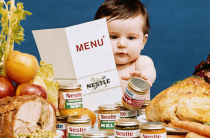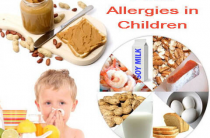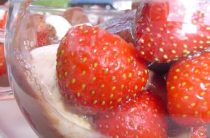A food allergy is an immune system disorder in which allergic reactions occur after exposure to certain components found in food. For a certain reason, the patient's body believes that the components of some batteries are dangerous for the patient. Therefore, there is a rapid development of reactions from the immune system.
In the development of food allergies, a large role belongs to the phenomenon of hereditary predisposition. In this case, the transfer is carried out only in relation to the predisposition to food allergies, while the specific foods that cause it may vary. The greatest danger to the child is the presence of food allergies in one of the parents. The further the degree of relationship, the lower the probability of hereditary transmission.
Most allergic reactions are provoked by proteins that enter the bloodstream through the gastrointestinal tract. Allergen proteins have a number of chemical properties that allow them to remain unchanged after thermal exposure (during cooking), as well as processing by the digestive tract. As a result, such proteins enter the bloodstream in their original form, and not in the form of individual amino acids. The organism of an allergic person reacts extremely hostilely to the ingress of a foreign object, which becomes the reason why the patient has allergic reactions. Most often, allergic disorders are provoked by proteins that are found in eggs, cow and goat milk, nuts, seafood, chocolate, and soy and wheat products.
Food allergy to shrimp and peanuts is one of the most difficult to tolerate allergic disorders. Often eating them causes anaphylactic shock in allergy sufferers - a condition with a potential danger of death. People who suffer from peanut allergies need to know that this type of nut is widely used in the food industry and can be found as an ingredient in a wide variety of foods. This must be taken into account, since even the smallest trace of this product (which must be indicated) can cause acute and dangerous allergic reactions.
What foods should be excluded?
In case of food allergies, products that are allergens for this patient are the first to be excluded. But these are far from all dietary measures that should be taken during the exacerbation of an allergic reaction. The patient's diet should be given close attention, as this is as important an aspect of treatment as the use of medications.
And so, what are the dietary restrictions that do not apply to allergenic foods? These restrictions during a diet for food allergies are associated with the activity of a hormone such as histamine. This compound plays a very important role in various biological processes. But with allergic disorders, it is this hormone, the release of which is provoked by the allergen, that causes numerous symptoms of the disease. This fact indicates that during allergic reactions a large amount of this hormone accumulates. In our body, the concentration of histamine can increase not only through its internal production. It can also be ingested with food or released by immune cells under its influence. A diet for food allergies without fail excludes these categories of products.
Foods containing histamine
Histamine is found in fish and seafood, but its amount is relatively small, which allows many people to limit the use of this type of food during a diet with food allergies. But this rule does not apply to canned seafood. In any canned food, an increased concentration of histamine, which is formed from the amino acid histidine during long-term storage. Therefore, any preservation for food allergies is prohibited. The same processes occur in smoked meats, so they should also be discarded during a diet with food allergies.
Preservation and smoking is not the only way to enrich foods with histamine. Any food components prepared by marinating, salting and drying are also prohibited. Hard cheeses do not contain histamine, however, they are rich in tyramine. This substance is able to increase the concentration of histamine by acting on the cells that contain it. Meat that is cooked by roasting is also prohibited. This process leads to the formation of histamine from meat protein. Therefore, when cooking meat, it is preferable to use stewing, boiling or baking. With food allergies, you should not eat foods that contain preservatives, dyes and other synthetic components. They overload the digestive system, as a result of which the elimination of allergens is slowed down.
There is also a large amount of histamine in foods such as tomatoes, spinach and wine. And increase the concentration of histamine: potatoes, plums, bananas, oranges, eggplant and tomatoes. As you can see, some foods increase the concentration of the allergy-causing hormone in several ways at once. They are most dangerous during food allergies.
Products from which the diet should consist
In some cases, a food allergy diet can be followed for a long time. Therefore, when planning a daily diet, the beneficial substances that are part of the products to be excluded and their adequate replacement should be taken into account. The meal plan should include foods rich in protein, the right carbohydrates, healthy fats, and vitamins. Such foods include: meat and offal, dairy products, cereals, vegetables and fruits. Your daily nutrition should be as healthy and natural as possible - this is the second part of which the diet for food allergies consists. By following these rules, you will achieve a speedy recovery, preventing the symptoms of the disease from aggravating due to the fault of improperly selected foods.















